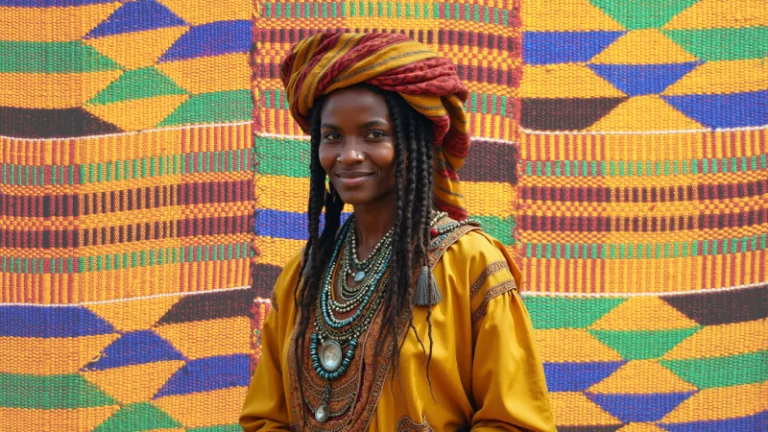
When you think about dating, you might picture dinner, a movie, and maybe even a few Instagram stories to let people know things are going well. But in Nigeria, dating has layers, depth, and a mix of traditions that make it uniquely Nigerian.
The dating culture in Nigeria isn’t just about two people finding love—it’s about families, communities, and a sense of pride. So, let’s break down some dating customs in Nigeria that might surprise you.
1. The Pre-Marital Introduction Ceremony Is A Must
In Nigeria, dating gets real when families are involved. You see, a relationship doesn’t officially start until both families meet, and it’s no casual affair. This formal introduction ceremony happens at the bride-to-be’s family home, where the groom’s family comes prepared to make their intentions known. And by intentions, I mean stating that they are serious about marriage, not just dating for fun.
This visit holds great importance. The groom’s family shows respect by paying tribute, and if the bride’s family accepts, it’s almost like a mini-wedding. Food, drinks, and often music add to the celebration, marking this moment as a key milestone. People say the energy of this ceremony often feels as special as the wedding itself—everyone knows it’s the real deal when families meet.

Once the introductions are done, a couple’s status in the community shifts; everyone sees it as a step closer to marriage.
2. You’re Supposed To Be Married By The Age Of 30
Imagine turning 30 and having everyone, from relatives to neighbors, wondering why you aren’t married yet. In Nigeria, the “unofficial” marriage age is 30, and the cultural expectation is strong. People often joke about it, but the pressure is very real.
Not being married by 30 often invites questions and unsolicited advice. The idea is that marriage is one of life’s biggest accomplishments. So, when someone in their late 20s is still single, people start to notice—and comment.
What to do about it? For those over 30, exploring options like the best dating sites for over 40 can provide fresh perspectives and new opportunities for connection.
How This Impacts Dating
There’s a tendency to approach relationships with the future in mind, as time is often seen as ticking. Older singles might face more family involvement, with relatives setting them up or pushing for introductions.
3. Couples Go Through Triple Wedding Ceremonies

- Traditional Wedding: Here, customs like paying the bride price or carrying wine are observed. Each ethnic group has specific traditions that celebrate their heritage.
- Court Wedding: This formalizes the marriage legally, with certificates signed and sealed.
- Religious Wedding: Depending on the couple’s faith, this ceremony happens in a church or mosque, blessing the union spiritually.
Each of these events calls for celebrations, outfits, and, naturally, a budget. You’re not just planning one big day; you’re planning three. It’s a massive production, and the families are as involved as the couple, pulling resources and planning months ahead.
4. Jollof Rice Is A Huge Test
In Nigeria, there’s one dish that holds a special place at every party: jollof rice. Known for its rich flavor and unforgettable aroma, it’s a national treasure. Now, imagine that this beloved dish somehow finds its way into dating culture!
For many Nigerians, a partner’s ability to make excellent jollof rice is almost like a relationship test. It’s a fun, lighthearted way to see if someone is “marriage material.” If not, you might want to rethink about your choices before it’s too late.
Cooking jollof well is a sign of understanding Nigerian food culture, and by extension, family life.
5. Social Media Validation Is Important

For many Nigerians, social media is a public stage for relationships. Couples often post photos with sweet captions, showing their affection for each other. Publicly celebrating relationships online has become part of the dating culture, where everyone can see just how strong the bond is.
But there’s more to it than just pretty pictures. Social media can be a “test” of relationship longevity. If you’re willing to post about your partner, it signals seriousness and commitment. Conversely, if you go quiet on posts or remove photos, friends and followers will notice and might start asking questions.
6. Parental Blessings Is The Key to Moving Forward
In Nigeria, no relationship is considered complete without the blessing of parents. For many couples, dating isn’t solely about mutual affection. It’s about showing the family, especially the parents, that the relationship is grounded in respect and tradition.
It’s not just about receiving blessings either; the couple may actively seek advice and guidance from both sets of parents. Parents often play an advisory role in Nigerian relationships, and their opinions are taken to heart. For some, a relationship doesn’t truly progress until both sets of parents have given their blessing.
7. “Coming to Stay” Tradition

In many Nigerian relationships, there’s a period known as “coming to stay.” It’s when the partner, often the bride-to-be, spends extended time with the groom’s family to experience what married life might be like. It’s a subtle trial period before the official union, giving the couple a glimpse into shared responsibilities.
“Coming to stay” involves learning family traditions, sharing meals, and understanding daily routines. It’s a hands-on way to see how well the couple adjusts to each other’s backgrounds. And while it’s not a formal requirement, many Nigerian families believe it strengthens the bond before marriage.
Final Thoughts
Dating in Nigeria is filled with customs, family involvement, and layers of tradition. These customs make relationships richer and more meaningful.
Each tradition adds a sense of connection, not only between the couple but between their families and communities.











